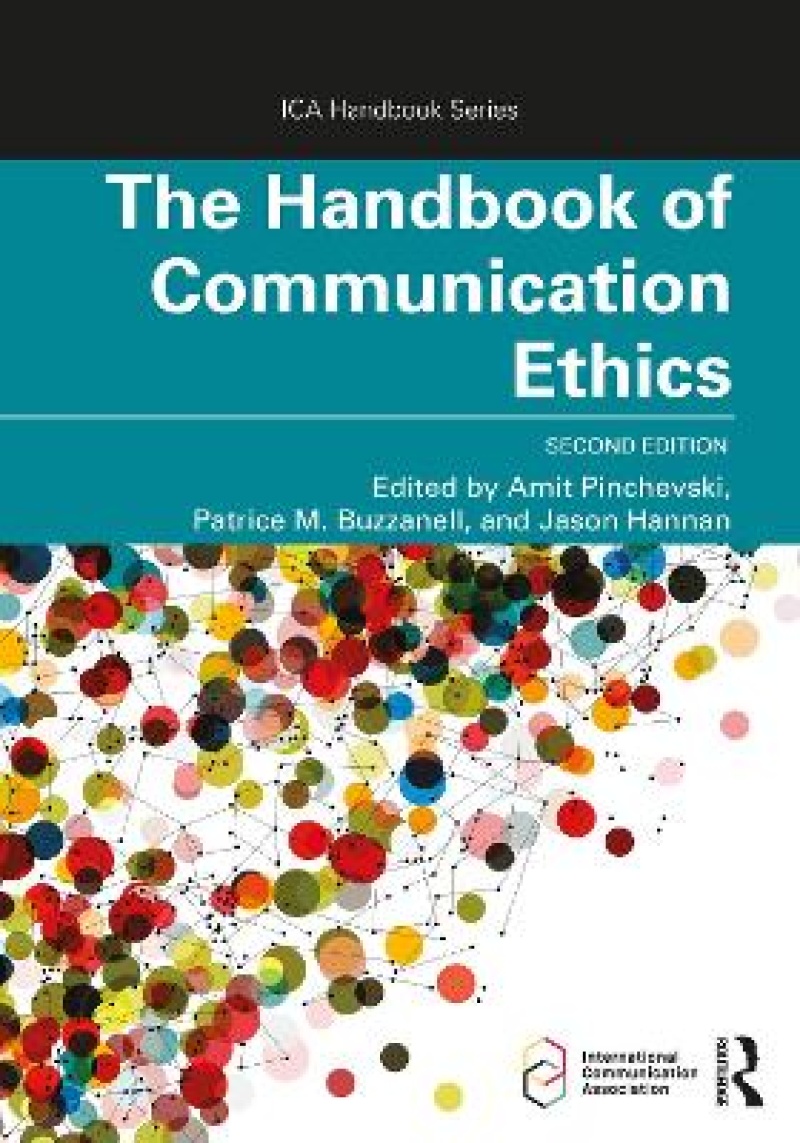<p>"The second edition of <i>The Handbook of Communication Ethics</i> comprises an invaluable resource for navigating today’s complex ethical landscape. Authored by a diverse group of contributors, this timely volume delivers a dynamic exploration of both foundational theories and cutting-edge issues. It boldly addresses the global crisis in communication ethics, where political, cultural, and technological forces threaten truth, dialogue, and social justice. It aptly confronts contemporary ethical complexities such as AI, DEI, environmentalism, misinformation, and disability studies. More than just a reference, this handbook is a call to action, urging us to reshape communication ethics and foster fresh research and practices.”</p><p><b>Brenda J. Allen</b>, <i>Professor Emerita, University of Colorado Denver, USA</i></p><p>“An extraordinarily rich resource, this handbook offers a wealth of insights, combining needed explanations with intellectual challenges. In our ethically difficult world, every communication scholar, indeed every communicator, will want this volume by their side.”</p><p><b>Sonia Livingstone</b>, <i>Digital Futures for Children Centre, LSE, UK</i></p><p>“While the first edition of <i>The Handbook of Communication Ethics</i> theorized the intricate relationships between communication, power, and ethics and the dialectical tensions between theory and practice, this second edition takes the discussion much deeper into exploring the new and emerging aspects of communication ethics that confound contemporary decision-making processes. The well-curated volume of thought-provoking chapters presents novel and non-traditional perspectives on communication ethics in an age of blurred lines between real and AI-driven simulated interactions or indeed of polarized understandings of truth, humanity, and justice. This exciting new book is a must-read for scholars, practitioners, and philosophers in the broader domain of media and communication.”</p><p><b>Debashish Munshi</b>, <i>University of Waikato, New Zealand</i></p><p>“An excellent reference book considering emerging ethical issues and different perspectives for engaging them. The volume is representative of differing conceptions of ethics and the ways contemporary ethical issues are experienced in different areas of the world. The 27 essays are offered by authors of diverse backgrounds and areas of expertise. I appreciate the inclusion of new voices and the direct attention to the contemporary complexities of power dynamics, new technologies, colonialization, and culture wars as experienced in the various communication contexts from the most personal to mass and mediated communication. The essays are conceptually nuanced and often contain helpful detailed case studies. Many go beyond analysis and critique to provide useful alternative practices to be considered. The volume is incredibly ambitious and managed well, posing insights and lots of spaces for productive discussions.”</p><p><b>Stanley Deetz, </b><i>Professor Emeritus, University of Colorado at Boulder, USA</i></p>
The second edition of this handbook offers a thoroughly updated overview of the different approaches and perspectives in communication ethics today.
Extending the path paved by its predecessor, this handbook includes new issues and concerns that have emerged in the interim—from environmentalism to artificial intelligence, from disability studies to fake news. It also features a new structure, comprised of three sections representing a wide array of communication ethics: traditions, contexts, and debates. Rather than focusing exclusively on a subset of ethics (such as interpersonal communication, rhetoric, or journalism, as do other handbooks of ethics in communication), this collection provides a valuable resource for those who seek a broader basis on which to study communication ethics.
This handbook is a must-read for faculty, graduate students, and advanced undergraduate students in all areas of communication studies, as well as in neighboring disciplines such as rhetoric, media studies, sociology, political science, cultural studies, and science and technology studies.
The second edition of this handbook offers a thoroughly updated overview of the different approaches and perspectives in communication ethics today. This handbook serves as a must-read for faculty, graduate students, and advanced undergraduate students in all areas of communication studies.
Introduction Part I: Traditions 1. Rhetoric and Ethics 2. Dialogic Ethics: Listening 3. Virtue Ethics: Conversing with the Dissonant Remainders of Democracy 4. Liberalism 5. Pragmatism: Communication Ethics as Melioristic Inquiry 6. The Origin and Horizon of Ethics: A Philosophical Hermeneutic Interpretation 7. Poststructuralism: A Philosophy of Difference 8. Transnational Feminist Ethics and Second World Feminist Ethics 9. Relevance of Postcolonial Logics in Communication Ethics Part II: Contents 10. Identity, Difference, and Interpersonal Relationships: (Re)Considering Interpersonal Communication Ethics 11. Organizational Communication Ethics 12. Health Communication Ethics 13. Enhancing Ethics in Varied Communication Contexts through Dialogical Communication 14. The End of Traditional Journalism Ethics 15. Questioning the Ontological Legitimacy of Law: A Communication Ethics Approach to Sexual Violence Law 16. Climate Communication 17. Slow Bearings in the Dark: Waiting and the Ethics of Carefully Attending in the Digital Limit Situation Part III: Debates 18. Artificial Intelligence 19. Media Witnessing and the Ethics of Humanitarian Communication 20. Intersectionality: (Re)orienting toward Social Justice and Ethics in Communication Scholarship 21. Truth, Fake News, and Conspiracy Theories 22. On the Impossibility of Ethical Surveillance 23. Digital Activism Ethics 24. Culture Wars 25. Disability at the Intersections of Communication Ethics and Media Technologies 26. Queer Theory and Communication Ethics: Deconstructing and Reimagining Dominant Norms 27. On the Ethical Complexity of Digital Game Experiences Epilogue Index
Produktdetaljer
Biografisk notat
Amit Pinchevski is Professor and Chair of the Department of Communication at the Hebrew University of Jerusalem, Israel.
Patrice M. Buzzanell is Distinguished Professor in the Department of Communication at the University of South Florida, USA.
Jason Hannan is Professor in the Department of Rhetoric, Writing, and Communications at the University of Winnipeg, Canada.
